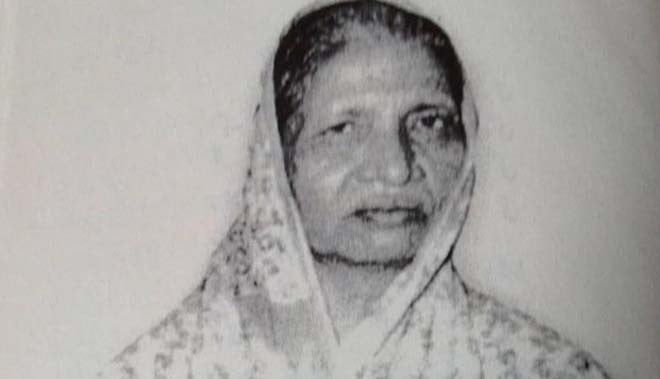
Comrade Shanta Bukhari lived and died fighting for the rights of women workers

There are very few women who have played the role of a popular labour leader and Comrade Shanta Bukhari was one of them. Since her childhood, she fought for the rights of women workers and was bracketed with popular leaders of women before the partition of the subcontinent. When she migrated to Pakistan, she continued her struggle and put the women workers on the track of awareness. Her husband comrade Jamaluddin Bukhari was also a communist leader.
She was born to Peera Jee, a tailor master, in village Kota Bundi, Jhala Warr, in Rajasthan on October 29, 1922. Her father died at the age of 28 years. Shanta’s mother Kastoori, a schoolteacher, died soon after Shanta’s birth so she was brought up by her maternal grandmother and later by her aunt Milee Sundra who had embraced Islam and was named Amna alias Sakina. Amna was an active worker of All India Communist Party whose husband Jagan Khan was also a full time worker of the party. They had no child so they took the responsibility of raising Shanta.
Shanta used to go to school in the morning, worked in a cloth mill in the evening and did the house chores during night. At the age of 12, she gave up her education and worked as a full time worker in a factory to earn ten anna for 12 hours labour. Seeing the plight of factory workers and poor women, she started giving lectures to inform the women labourers about their due rights.
She also participated in the activities of the Communist Party. There was a party’s women wing where she mapped out various plans to elevate the financial status of women workers.
Before her marriage with comrade Jamaluddin Bukhari in 1942, she embraced Islam in the city of Ahmadabad in India and became Zaib-un-Nissa. She was on the acme of popularity at that time. After their wedding, both the leaders started political activities and were jailed on several occasions. Besides labour rights and politics, she also maintained home affairs, brought up children and paid attention to their education.
When Pakistan came into being, she migrated to Pakistan along with her husband and children and started living in Karachi at Bunder Road near the light-house. She established an office in her house that was a meeting place for workers of the Communist Party and training centre for women workers. On reaching Pakistan, Jamaluddin Bukhari was put behind the bars, so all political and household responsibilities rested on her shoulder. But, she did not lose hope.
In Pakistan, the Communist Party was facing hard times and its leaders and workers were asked to leave the country. Those who refused to leave were imprisoned. She faced many financial hardships after her husband’s arrest, but she braved the situation patiently.
Despite all odds, she established Khidmatgar Union for women working in houses and factories and raised voice for their rights. She also brought women working in bangle manufacturing factories and cloth mills under one umbrella so that an organised movement could be initiated. She was the founder president of many such welfare associations and it was her mission to free women from slavery and enable them to get their due remuneration with honour and dignity.
When she shifted to Larkana from Karachi at the request of Qazi Fazlullah who was a classmate of Jamaluddin Bukhari at Aligarh University and later became the chief minister of Sindh, she started social work for women there to elevate their role in the society. There was a Gomi Bai Ladies Club in Larkana where only moneyed women and wives of bureaucrats enjoyed the facilities and other women were not allowed to visit the club. She successfully manoeuvered and made the place accessible to skilled women whose hand-made cultural articles and handicrafts were put on the sale in exhibitions at the club. Skilled women earned satisfactory earnings and Sindhi cultural articles got popularity.
When her husband passed away, a host of political leaders from all over Pakistan, including G. M. Syed, came to her house for condolences. Shanta Bukhari gave birth to eight sons and one daughter. Amma (mother) for all those who knew her, she used to wear a white saree and was always kind and courteous to all.
After the death of her husband, she fell ill and passed away in Karachi on July 25, 2014. Her body was taken to Larkana city where she was laid to rest beside the grave of her husband.